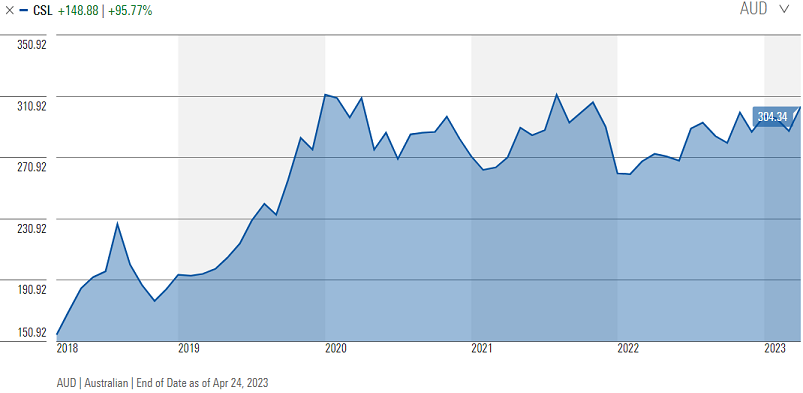The Australian equity market was almost at an all-time high when the RBA began lifting interest rates a year ago to rein in inflation. While initially falling over 10%, ten hikes and 3.5% later the equity market is once again back near its highs. Such a steep rise in interest rates drives the cost of capital higher for companies and should result in lower valuations for assets such as equities while earnings should be impacted by the resulting slower growth.
However, the market appears to be shrugging this off, focusing on the continued strength of the economy, data suggesting inflation has peaked and the fact the RBA paused raising rates this month. Inflation may have peaked, but the core is elevated well above the RBA target range, meaning that rates are more likely to go up than down, potentially sending the economy into recession.
Inflation remains a major problem globally and as we know, the policy response of higher interest rates operates with long and variable lags. There is likely more economic pain to come, and data releases will continue to be heavily scrutinised and have a larger than usual impact on market direction.
In this environment of heightened uncertainty combined with the market trading near its highs, we believe it’s particularly important to be clear where you can add value when making investment decisions. For stock selection this means focusing on company fundamentals and seeking those that are insulated as much as possible from unpredictable macroeconomic risks and able to weather an economic storm if required.
Companies with the trifecta
Three key factors to focus on in identifying these types of companies are industry structure, competitive advantages, and financial resilience.
Regarding industry structure, it could be a company that operates in an industry with defensive earnings streams such as healthcare, supermarkets or telecommunications. Or it might be in an industry which has cyclical characteristics but is highly fragmented allowing the company to achieve good growth despite a downturn, by taking market share.
The second factor to assess is the company’s competitive advantage. Companies with a strong competitive advantage tend to have pricing power, allowing them to pass on cost increases to protect their profit margin in a high inflation environment.
The third characteristic to seek out is financial resilience. This means little or no debt, good cashflow generation and a return on shareholders capital higher than the cost of capital to create value for shareholders longer term.
CSL remains compelling
An example of a company that ticks these boxes would be CSL Limited (ASX:CSL). Its primary business is the production of life saving plasma derived products to treat rare diseases. The industry does not experience reductions in demand linked to the economy and indications for the use of its products are growing.
Key competitive advantages are its scale and production processes which make it the most efficient and lowest cost producer and the capital investment and FDA approvals required to operate in the industry provide high barriers to entry. Given the relatively niche nature of its products and the diseases they treat, CSL benefits from being a price maker rather than price taker.
On the financial front, debt levels are higher than usual due to the recent acquisition of Vifor but are still moderate and can be paid down quickly from free cashflow. In addition, CSL has consistently earned a return on invested capital well above its cost of capital.

Source: Morningstar
Corporate Travel Management ticks box too
Another perhaps less obvious company that fits the resilient category is Corporate Travel Management Ltd (ASX:CTD). It operates in the business travel industry, which is exposed to economic cycles, however given the fragmented nature of the industry, it has the potential to grow through the cycle by taking share from smaller players and winning new clients, including those whose company travel was previously unmanaged.
It also ticks the financial resilience box. It did not need to raise capital for survival during the Covid-19 period, it generates good cashflow, has no debt and outside of the pandemic, earns a healthy return on capital.

Source: Morningstar
These are just two examples of companies that are likely to be resilient in a downturn. Overall, while macroeconomic noise such as changes in interest rates, geopolitical tensions, or economic slowdowns can create short-term market volatility, it can also provide opportunities for patient investors who are willing to do their research and invest for the long term.
Kelli Meagher, CFA is a Portfolio Manager at Sage Capital. This article contains general information only and does not consider the circumstances of any investor.
Sage Capital is an investment manager partner of Channel Capital, a sponsor of Firstlinks. For more articles and papers from Channel Capital and partners, click here.